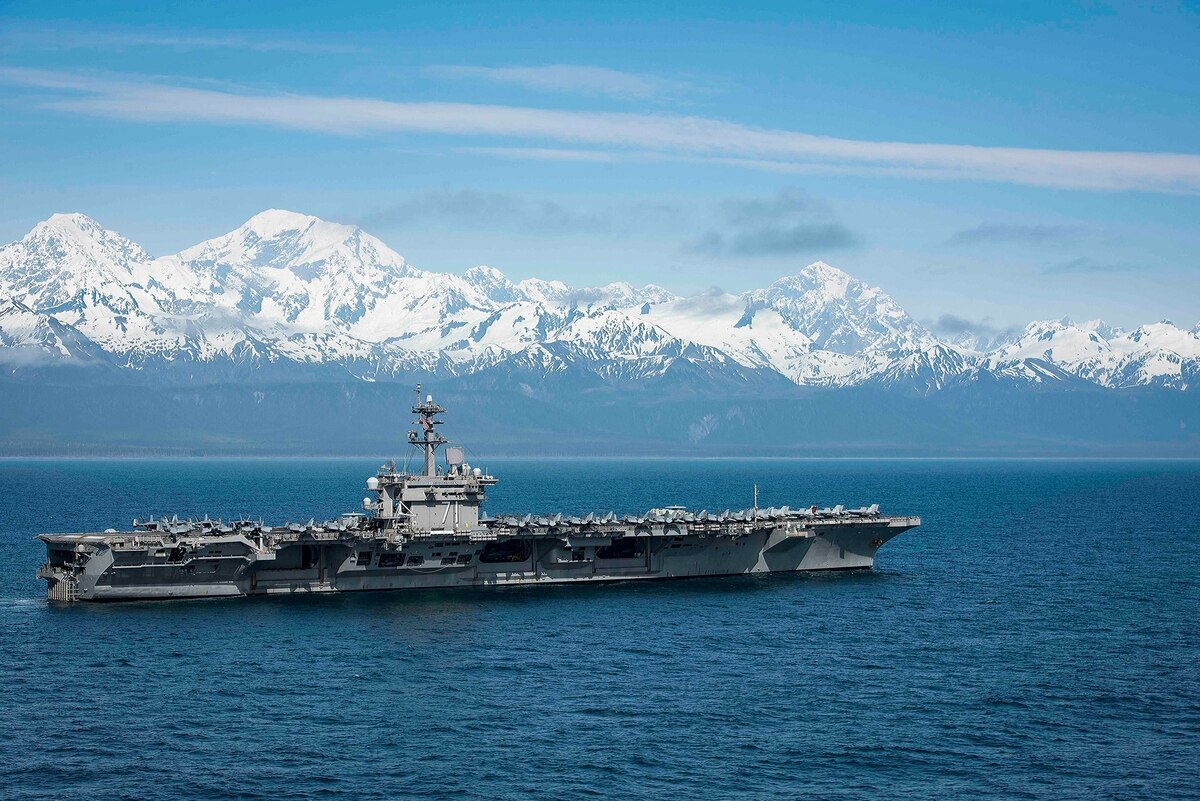U.S. Navy officials doing the groundwork on future military war games in the Gulf of Alaska are being challenged by several conservation entities who contend the Navy should prepare a revised draft supplemental environmental impact statement. The Navy contends that the document is at an appropriate level of analysis because there are no major changes in proposed future training activities included.
Still all public comment received on the draft document will be addressed in the final EIS/OEIS (overseas EIS), Navy officials said.
According to the letter sent in mid-February to the Naval Facilities Engineering Command Northwest, concerns from the conservation groups include potential impact to fisheries, marine mammals and seabirds who live in and migrate through the Gulf of Alaska, where the military exercises, known as Northern Edge, have been held every other spring. Documents being prepared by the Navy now are for getting renews permits for war games beyond 2022.
The conservation groups contend that the current EIS/OEIS discounts the potential impact of the war games on fish and fisheries from high intensity noise, including seismic air guns and some anthropogenic noise as well.
A review of 42 studies on the effect of noise on fish suggests that the majority of fishes are sensitive to noise, including alarming impacts on foraging, predation risk and reproductive success, they said. Noise has been shown to produce a stress response and behavioral reactions in some fish that include loss of coherence, dropping to deeper depths, milling in compact schools, “freezing” or becoming more active, they said. The letter also contends that some fish species, including cod, have been reported to flee as inferred from decreased catch rates for both long lines and trawler fisheries near operating air guns. Recent studies also have shown that seismic surveys are detrimental to zooplankton, which could have damaging effects up the food chain, they said. The letter was signed by representatives of the Center for Biological Diversity, the Natural Resources Defense Council, the Alaska Marine Conservation Council and two entities based in Cordova, Alaska, the Eyak Preservation Council and Native Conservancy.
Navy officials acknowledged that planned future activities include use of active sound navigation, including sonar and weapons systems that may use non-explosive or explosive munitions at sea. However, the Navy will continue to implement mitigation measures to avoid or reduce potential impacts on marine species and the environment, they said.
Environmental Issues Posed Anew as Navy Prepares for Future War Games in Gulf of Alaska

